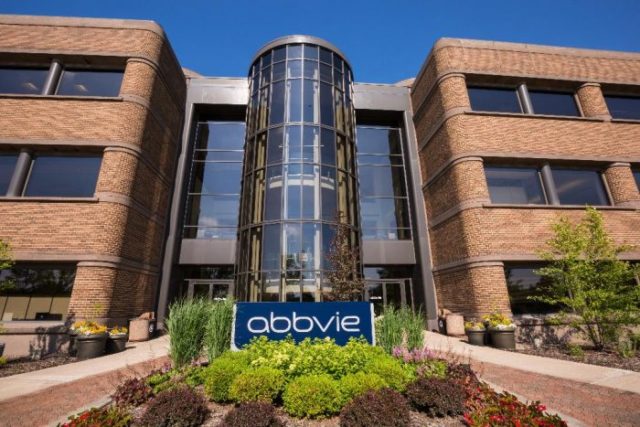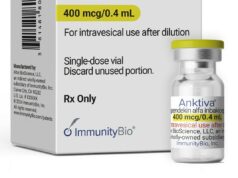
AbbVie has been looking for ways to diversify its product lineup, and its latest move expands its gene therapy prospects through a partnership with Regenxbio on its lead product candidate in development for treating two eye diseases.
Under an agreement announced Monday, AbbVie is paying Regenxbio $370 million up front to collaborate on RGX-314, a gene therapy in Phase 3 testing as a treatment for the wet form of age-related macular degeneration (wet AMD). It’s also being evaluated in two mid-stage studies in diabetic retinopathy.
Rockville, Maryland-based Regenxbio will be responsible for completing the ongoing clinical trials for RGX-314. AbbVie will take the lead on future clinical development and commercialization of the gene therapy—if it’s approved. Regenxbio could earn up to $1.38 billion more in development, regulatory, and commercial milestone payments. The company would also earn royalties from AbbVie’s sales of the gene therapy.
For AbbVie, the Regenxbio deal comes four months after it committed $90 million to preclinical-stage Capsida Biotherapeutics, a Thousand Oaks, California-based biotech that engineers capsids, the protein shells that envelop a gene therapy. That alliance is focused on central nervous system disorders. While the Capsida deal grants AbbVie options to pick up the development and commercialization of gene therapy candidates, the Regenxbio deal gives the North Chicago, Illinois-based pharma giant access to a gene therapy much closer to reaching the market.
Wet AMD is disease of the eye in which blood vessels leak fluid or blood into the part of the retina called the macula. Consequently, patients experience vision loss or blind spots. Treatment for the disorder are drugs that that slow or stop the growth of the blood vessels. These medicines are chronic treatments that must be injected every four to six weeks.
Regenxbio’s gene therapy offers the prospect of a one-time treatment. RGX-314 uses an adeno-associated virus to deliver to retinal cells a gene the encodes an antibody fragment that blocks vascular endothelial growth factor (VEGF), a signaling protein that promotes blood vessel growth.
Clinical trials so far have tested a subretinal injection, which is an established way of delivering gene therapies for eye disorders. The company has also licensed rights to microinjector technology from Clearside Biomedical that delivers gene therapies to the suprachoroidal space, the region between the sclera, which is the outermost layer of the eye, and the choroid, which is the layer where the blood vessels that supply the retina are found. Regenxbio has said that the Clearside Biomedical device could enable non-surgical administration that would not expose other parts of the eye. This dosing could also be done in a doctor’s office.
The pivotal study underway in wet AMD uses subretinal injections. The Regenxbio gene therapy is also being evaluated in two separate Phase 2 clinical trials testing suprchoroidal delivery of the gene therapy, one study for wet AMD and the other for a complication of diabetes called diabetic retinopathy. According to Regenxbio’s securities filings, the company is responsible for up to $136 million in milestone payments to Clearside Biomedical upon achieving development and sales milestones, plus royalties from any sales of a therapy that uses the microinjector technology.
AbbVie’s eye drug portfolio and pipeline currently consists of products added through its $63 billion Allergan acquisition. One of the reasons North Chicago, Illinois-based AbbVie struck that deal was to expand its portfolio, moving away from its reliance on sales of immunology drug Humira. The antibody drug generated more than $19.8 billion in revenue last year, making it far and away the company’s top-selling product. But the drug faces competition from biosimilars starting in 2023.
Regenxbio’s RGX-314 could face competition of its own. Adverum Biotechnologies is also developing a gene therapy for wet AMD and it has encouraging data from Phase 1 testing. But that gene therapy, ADVM-022, is the same one suspected of causing blindness and other eye problems in a separate clinical study in diabetic macular edema. Due to those problems, Redwood City, California-based Adverum announced in July that it would no longer develop that gene therapy for diabetic macular edema.
AbbVie and Regenxbio expect to close the transaction by the end of this year.
Photo by AbbVie








